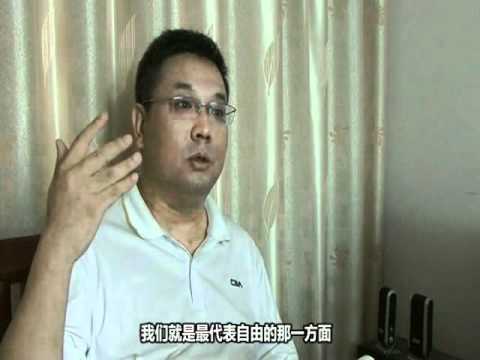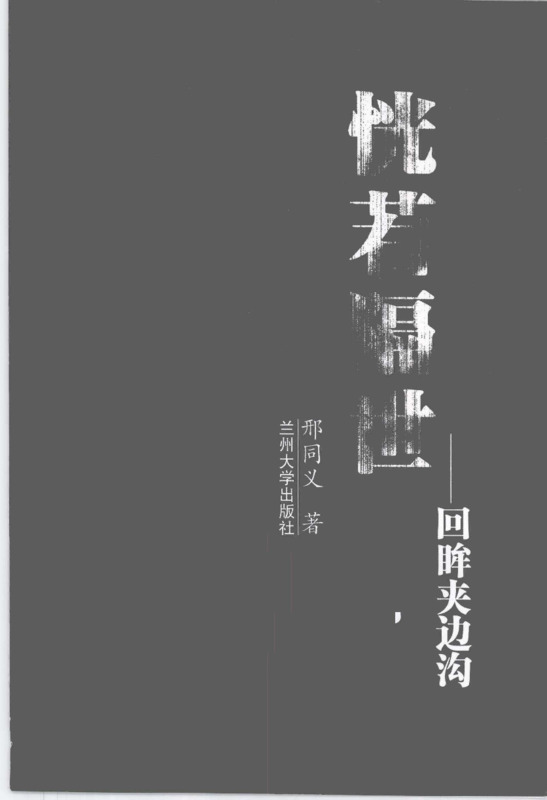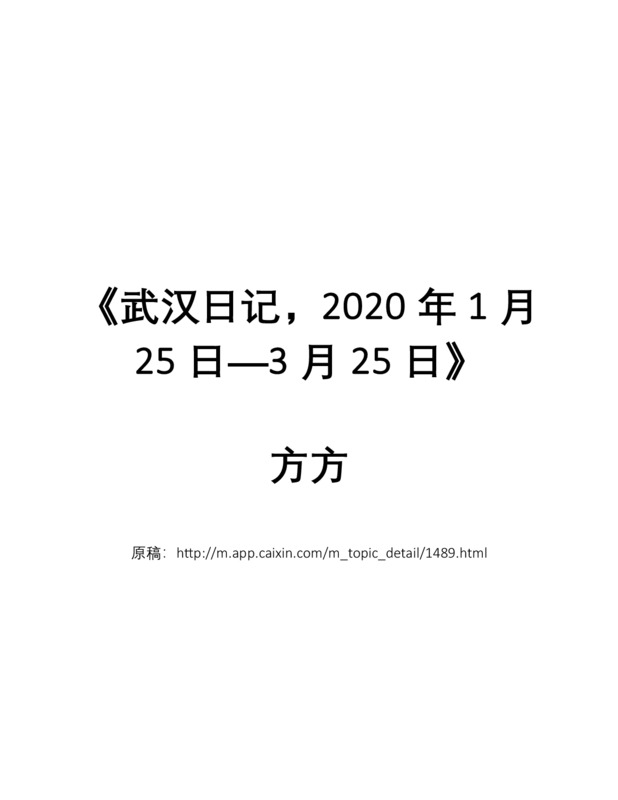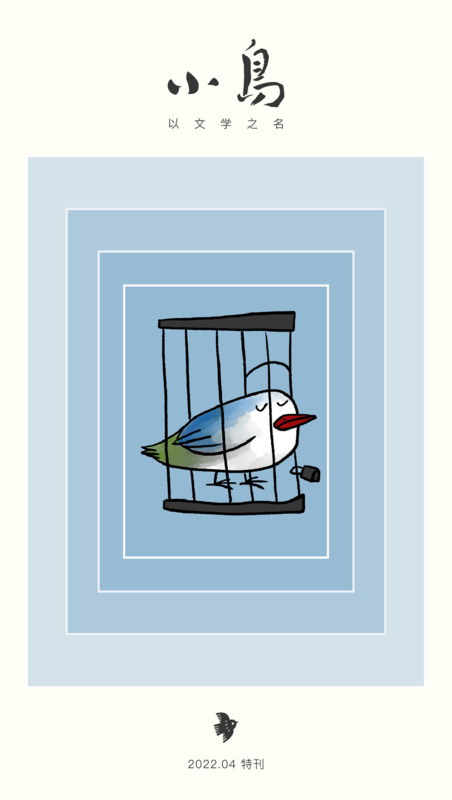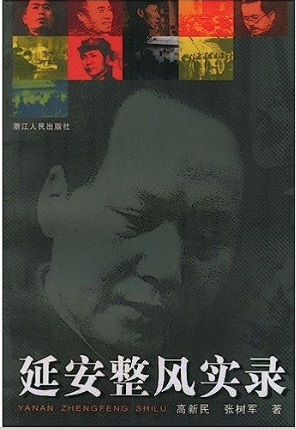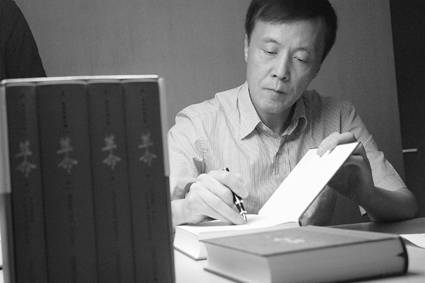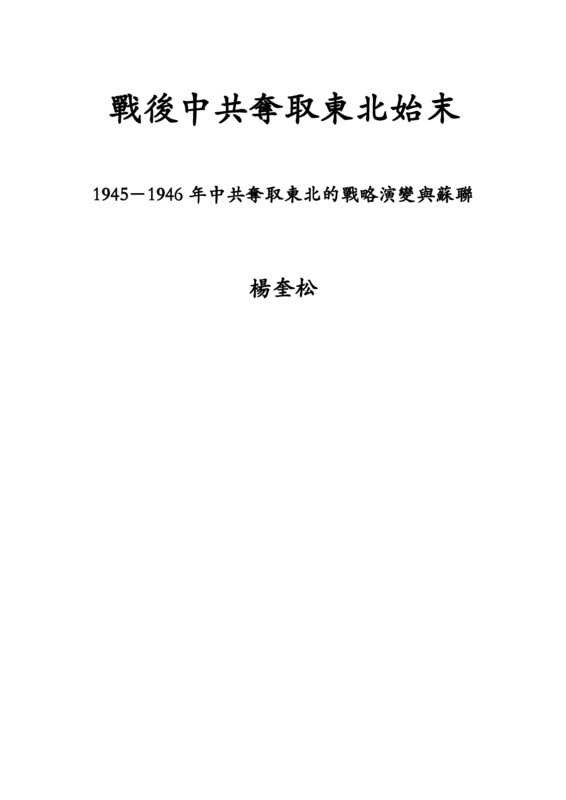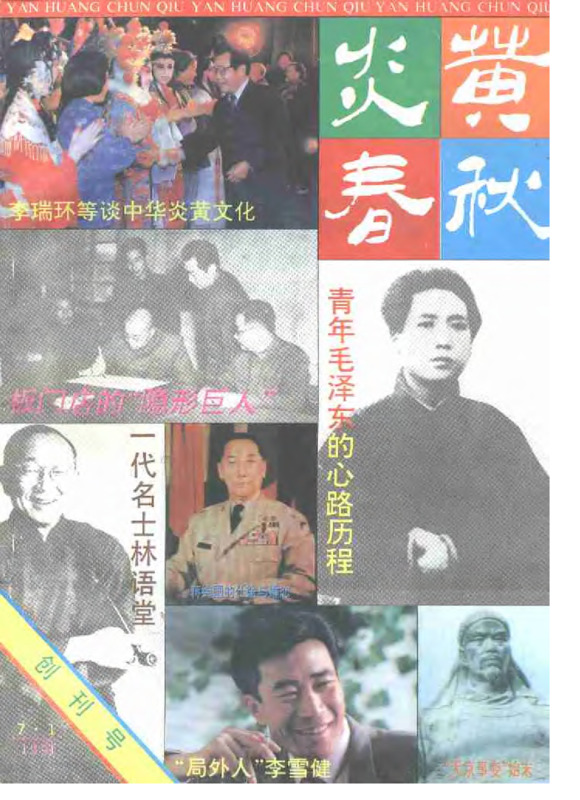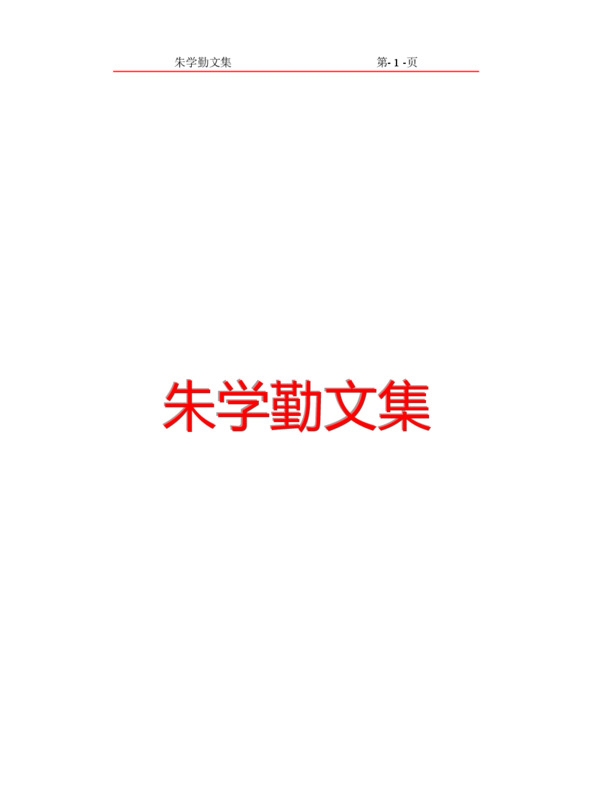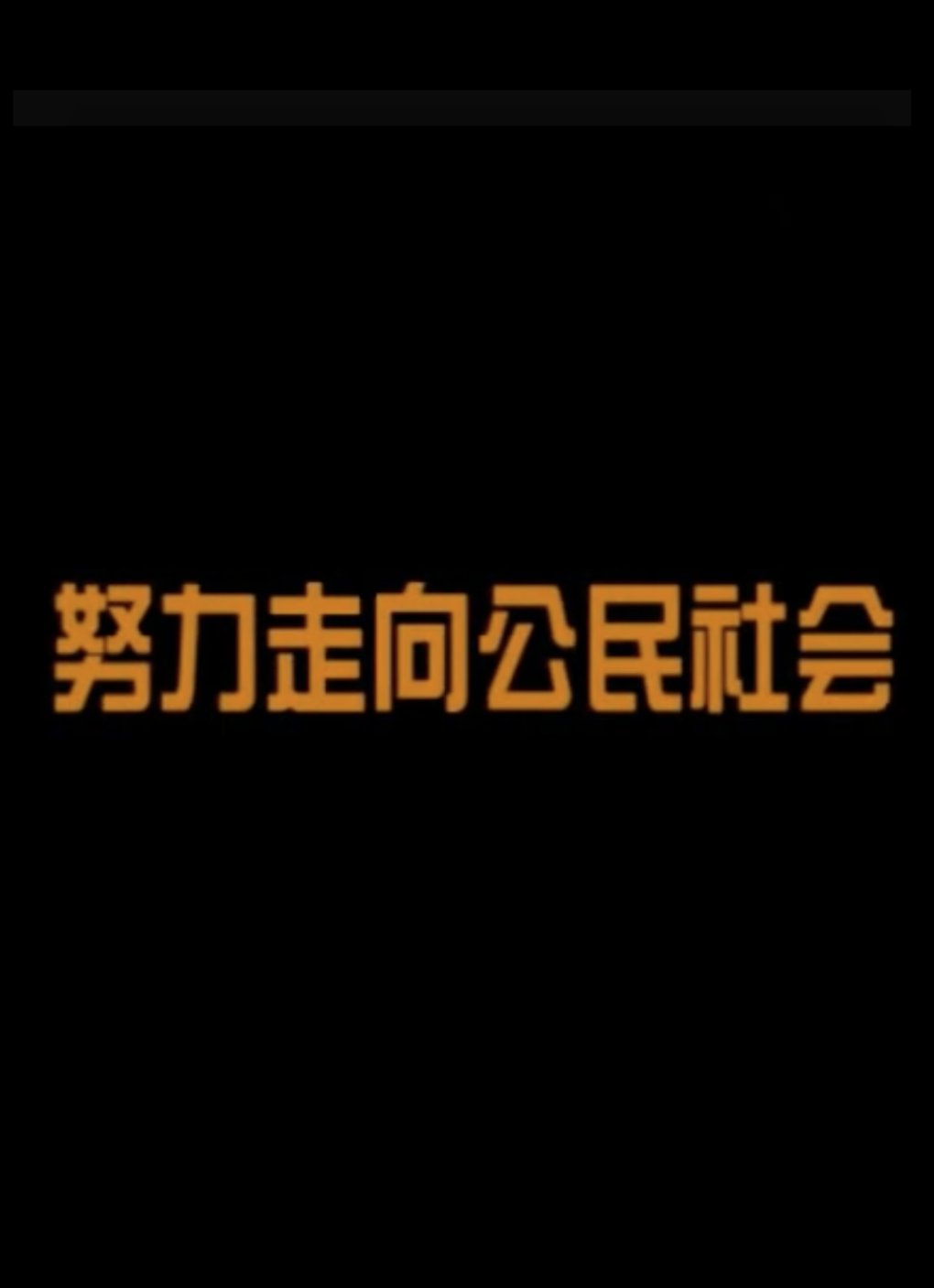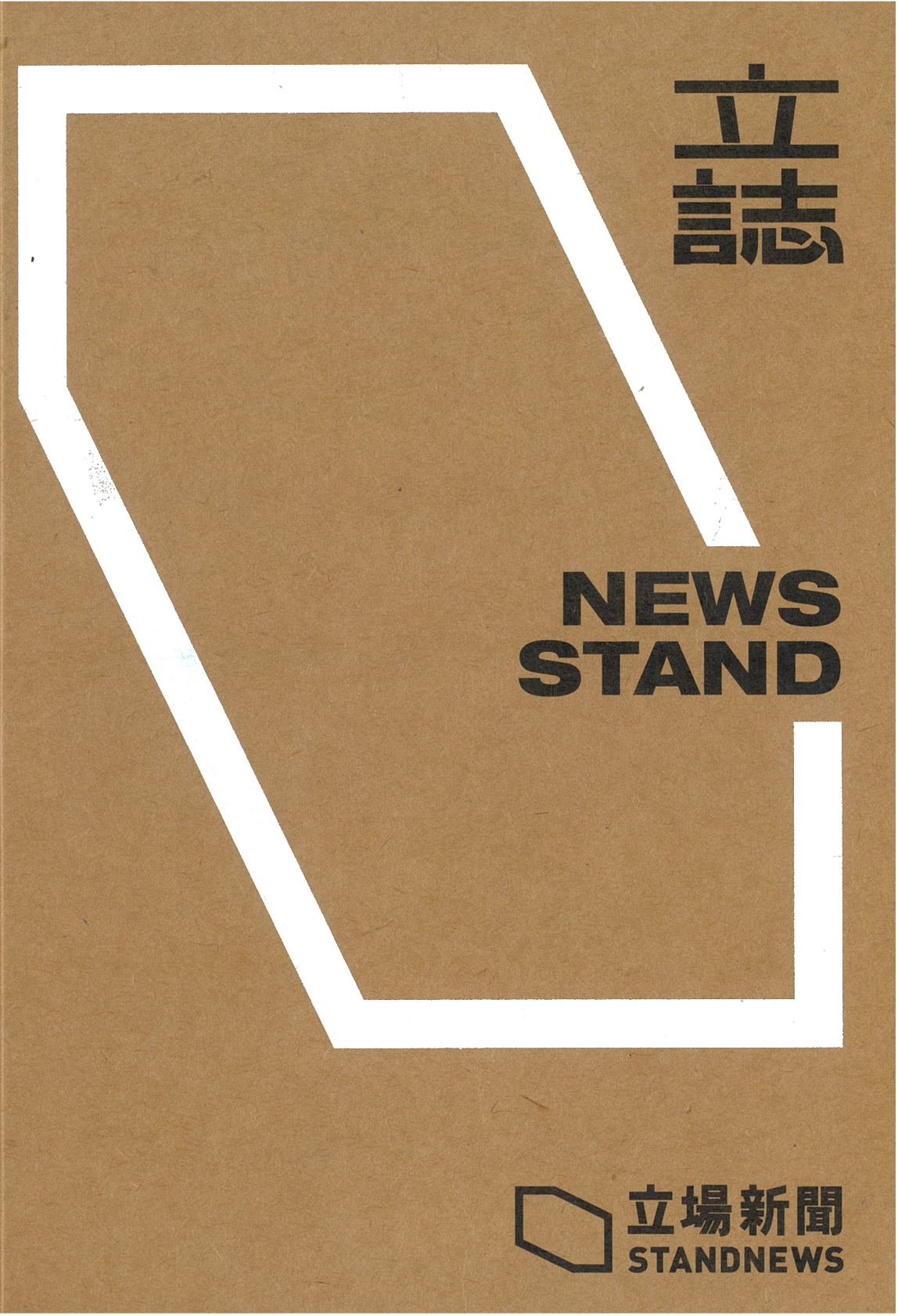Explore the collection
Showing 299 items in the collection
299 items
Film and Video
Working toward a Civil Society (Episode 9): Zhang Hui
How can China build a true civil society? Since 2010, independent director Tiger Temple has conducted a series of interviews with scholars and civil society participants.
Book
Worlds Away: A Look Back at Jiabiangou
This book was published by Lanzhou University Press in 2004. The author, Xing Tongyi, once served as deputy director of Gansu People's Broadcasting Station and director of the Standing Committee of the Jiuquan Municipal People's Congress.
Jiabiangou Farm is a farm located on the edge of the Badain Jaran Desert in Jiuquan, Gansu Province, about 30 kilometers northeast of Jiuquan City. It became a labor camp in 1957. Before it was banned in October 1961, more than 3,000 intellectuals who were labeled as rightists were detained here. During the Great Famine, most of the intellectuals in farm labor camps died due to starvation and excessive workload. This is known as the Jiabiangou Incident. Jiabiangou has also become a symbol of the concentration camps where persecuted intellectuals were imprisoned.
Xing Tongyi was born in Tianshui, Gansu. He said that when he was young, he witnessed a neighbor named Guo being beaten as a rightist and sent to Jiabiangou Labor Camp. In 1961, he learned that this neighbor had starved to death in Jiabiangou. When he was in school at No. 1 Middle School in Tianshui City, his math teacher was Li Jinghang, a Christian who survived Jiabiangou. Xing Tongyi later served as a reporter and deputy director of Gansu Radio Station for a long time, and went to work in Jiuquan in 1996. After that, he took advantage of various opportunities to go deep into Jiabiangou and some surrounding labor reform farms. By consulting a large number of historical materials, he interviewed dozens of rightists who had undergone labor reform in Jiabiangou, or the children of these rightists. It took eight years to complete this book.
Unlike Yang Xianhui's novelistic description of Jiabiangou, Xing Tongyi's narrative is composed of interviews with the people involved and quotations from first-hand historical materials. According to Xing Tongyi, the historical materials he referred to include the Jiabiangou Farm's "Plan and Mission Statement" and the anti-rightist report of "Gansu Daily" in 1957. In addition to interviewing Jiabiangou survivors or their children, he also found information on more than 40 of the more than 2,000 rightists who were in labor camps at the time and were prosecuted by the Jiuquan County Procuratorate for resisting labor camps. After the book was published, people continued to provide him with historical materials, such as death notices and diaries of the victims.
How many labor camp inmates were there in Jiabiangou at that time? In order to clarify this issue, Xing Tongyi interviewed dozens of people, reviewed information, and also found Luo Zengfu, the production section chief of Jiabiangou Labor Camp, the only farm management cadre alive at the time. Based on the information provided by Luo Zengfu, Xing Tongyi's research concluded that there were a total of about 2,800 inmates in Jiabiangou Farm at that time, including about 2,500 rightists. This number is considered to be relatively accurate.
Article
Wuhan Diary
This collection of diary entries by Wuhan-based filmmaker and activist Ai Xiaoming showcases her life during the early months of the COVID-19 pandemic, from February to March 2020. In these diary entries, Ai shares the daily challenges which many Chinese people grappled with, as well as their hopes and questions for the government and Chinese society at large. Her diary also examines problems regarding the expanding powers of the Chinese government. The first entry of Ai’s diary was published in English by the New Left Review, which can be found here:
https://newleftreview.org/issues/ii122/articles/xiaoming-ai-wuhan-diary.
Book
Wuhan Diary: Dispatches from a Quarantined City
This book is a collection of diary entries written in the early months of the COVID-19 pandemic by Fang Fang, a Chinese writer and advocate of the working poor in China. In these diary entries, Fang Fang documents the various daily difficulties faced by her and other Wuhan residents from January to March 2020. In this book, she also ponders the implications of official policies with regard to the pandemic and the way in which the public and the government have responded to the outbreak of COVID-19. These entries tell us about the hopes and fears of the people of Wuhan during the early stage of COVID-19, and adds to our understanding of public opinion and government policies in China in the 2020s. The diaries were published in Chinese, and have also been translated by Michael Berry into English and published by Harper Collins Publishers.
You can purchase the English version of the book using <a href="https://www.harpercollins.com/products/wuhan-diary-fang-fangmichael-berry?variant=40153409749026">this link</a> .
Periodicals
Xiaoniao Literature - Shanghai Lockdown Special Issues
These three issues published by "Xiaoniao Literature" explore the experiences, emotions, and hardships of Shanghai residents during the COVID-19 lockdowns in 2022. From poetry and photography to opinion and satirical pieces, various writers bring to life the 2022 Shanghai lockdowns for the rest of the world.
"Xiaoniao Literature" publishes twelve issues with over 300 pieces in total per year. Its content includes short novels, opinion pieces, and poetry.
Click [here](https://www.bumingbai.net/2022/06/ep-004-yi-xianfeng-yang-ying/) for an interview by *Bumingbai Podcast* with Yi Xianfeng and Yang Ying, co-founders of *Xiaoniao Literature*.
Film and Video
Xu Zhiyong
Chinese human rights activist Dr. Xu Zhiyong, twice imprisoned for his longstanding advocacy of civil society in China, was sentenced to 14 years in prison by the Chinese government in April 2023. The documentary by independent director Lao Hu Miao was filmed over a four-year period, beginning with the seizure of the Public League Legal Research Center, which Xu Zhiyong helped found in 2009, and ending with Xu's first prison sentence in 2014.
Book
Yan'an Rectification
The Rectification Movement took place in Yan'an, North Shaanxi Province, in the 1940s. This book, written by scholars within the Chinese official system, attempts to chronicle the ins and outs of the Rectification Movement in Yan'an and the base areas, analyzing its causes and the logical development of its results. It is rich in information that is only found here. This book was published by Zhejiang People's Publishing House in 1999.
Article
Yang Kuisong: A Study of New China's "Counter-Revolutionary Suppression" Campaign
How many people were "killed," "imprisoned," and "controlled" in the whole "anti-revolution" campaign? Mao Zedong later said that 700,000 people were killed, 1.2 million were imprisoned, and 1.2 million were put under control. Mao's statement was naturally based on a report made in January 1954 by Xu Zirong, deputy minister of public security. Xu reported at the time that since the anti-revolution campaign, the country had arrested more than 262,000, of which "more than 712,000 counter-revolutionaries were killed, more than 12,900,000 were imprisoned, and 1,200,000 were put under control, and more than 380,000 were released through education because their crimes were not considered serious after their arrest." (3) Taking the figure of 712,000 executed, it already amounts to one and two-fourths thousandths of one percent of the country's 500 million people at that time. This figure is obviously much higher than the one-thousandth of a percent level originally envisioned by Mao Zedong.
Article
Yang Kuisong: The Beginning and End of the CCP's Seizure of the Northeast after the War
The occupation of the Northeast was key to the CCP's success in seizing power in 1949. The author of this book, Yang Kuisong, is a professor and doctoral director of the Department of History at East China Normal University, and a researcher at the Institute of Modern History at the Chinese Academy of Social Sciences. This book describes the CCP's taking of the Northeast as well as the competition between the U.S. and the Soviet Union at that time. After reading it, you will understand: how the Soviet Union played a key role in the CCP's occupation of the Northeast.
Book
Yangmou - The Beginning and End of the Anti-Rightist Movement
The revised edition of this book was published by *Open Magazine* in Hong Kong in 2007. The first edition was published in 1991 and was revised and reprinted twice, in 1993 and 1995. The book collects a large amount of information about the anti-rightist movement, including survey interviews with victims of the anti-rightist movement and their relatives and friends. It is a complete record of the anti-rightist movement, which comprehensively analyzes and discusses the whole process of the anti-rightist movement, as well as its ins and outs, causes and consequences. Regarding the number of "rightists," the statistics of the CCP authorities had been limited to 550,000 people. According to Ding Lyric's analysis, there were about 1.2 million people who were labeled as "rightists" in the Anti-Rightist Movement.
Book
Yangtze Yangtze
In March 1989, the book Yangtze Yangtze was published by the Guizhou People's Publishing House just as the Tiananmen student protests were about to begin in Beijing. The book fed into this intellectual ferment, challenging the technocratic reasons for the Three Gorges Dam, which eventually would dam the Yangtze River in the name of flood control and electrical power generation.
The book was edited by the journalist Dai Qing, the daughter of a well-known Communist Party activist and leader. The book challenged the project's decision-making process, with a broad array of scientists, journalists, and intellectuals arguing that it was not democratic and did not take into account all viewpoints. It was widely read in China and translated into foreign languages.
After the Tiananmen protests were violently suppressed, Dai Qing was arrested and imprisoned for ten months in Qincheng Prison as an organizer of the uprising. Yangtze Yangtze was criticized as “promoting bourgeois liberalization, opposing the Four Fundamental Principles (of party control), and creating public opinion for turmoil and riots.” The book was taken off the shelves and destroyed, with some copies burned. It became the first banned book resulting from the decision-making process of the Three Gorges Project.
The book is banned in China. The English-language edition can be read online at Probe International: https://journal.probeinternational.org/three-gorges-probe/yangtze-yangtze/.
Yanhuang Chunqiu
This magazine was one of most important alternative history journals. It was founded in 1991 by a liberal faction in the CCP, with the help of people such as Xiao Ke, a general in the PLA, and Du Daozheng, a Chinese journalist who once served as head of Guangming Daily and the head of the National Press and Publications Administration of China. It attracted the support of other liberal CCP members, such as Xi Zhongxun, the father of Xi Jinping, and for many years its chief editor was the famous Chinese journalist Yang Jisheng.
The journal had upwards of 200,000 readers a month. In 2016 its reform-oriented management was dismissed as part of a crackdown on alternative histories.
The China Unofficial Archives has a complete set of <i>Yanhuang Chunqiu</i> in its database. Over time, we will index the individual issues and hope to provide English summaries.
Book
Zhao Ziyang’s Conversations Under House Arrest
In January 2007, Hong Kong Open Press published the book "Conversations of Zhao Ziyang under House Arrest". It was narrated by Zong Fengming and prefaced by Li Rui and Bao Tong. The narrator, Zong Fengming, is an old comrade of Zhao Ziyang. He retired from Beijing University of Aeronautics and Astronautics in 1990. From July 10, 1991 to October 24, 2004, using the name of a qigong master, Zong Fengming visited Fuqiang, who was under house arrest in Beijing. Zhao Ziyang, who lives at No. 6 Hutong, had hundreds of confidential conversations with Zhao Ziyang. This book is a rich account of these intimate conversations. Zhao Ziyang talked about the power struggle and policy differences within the top leadership of the CCP, his relationship with Hu Yaobang, his evaluation of Mao Zedong and Deng Xiaoping, his criticism of Jiang Zemin and Hu Jintao, Sino-US relations, the Soviet Union issue and Taiwan issues. He also conducted in-depth reflections on the history of the Communist Party.
Book
Zhu Xueqin Anthology
A collection of essays by Zhu Xueqin, a Chinese liberal intellectual. He has faced and criticizes various problems in China from a liberal point of view. Most of Zhu Xueqin's books were later banned.
Working toward a Civil Society
How can China build a real civil society? Since 2010, independent director Tiger Temple sat for a series of interviews with scholars and civil society actors.
Film and Video
Beijing's Petition Village
In China, individuals can complain to higher authorities about corrupt government processes or officials through the petition system. The form of extrajudicial action, also known as "Letters and Visits" (from the Chinese xinfang and shangfang), dates back to the imperial era. If people believe that a judicial case was concluded not in accordance with law or that local government officials illegally violated his rights, they can bring it to authorities in a more elevated level of government for hearing, re-decide it and punish the lower level authorities. Every level and office in the Chinese government has a bureau of “Letters and Visits.” What sets China’s petitioning system apart is that it is a formal procedure—and as Zhao Liang's documentary shows, the system is largely a failure.
A residential area near Beijing South Railway Station was once home to tens of thousands of residents from all over the country. Known as “Petition Village,” its bungalows and shacks were demolished by authorities several times, but many petitioners still clung to the land in search of a clear future. _Beijing Petition Village_ portrays the village in the midst of this upheaval, focusing on the thousands of civilians who travel from the provinces to lodge their complaints in person with the highest petitioning body, the State Bureau of Letters and Visits Calls in the province, only to repeatedly get the brush-off by state officials. Ultimately, in 2007, Petition Village was demolished for good.
The film went on to win the Halekulani Golden Orchid Award for Best Documentary Film at the 29th Hawaii International Film Festival, and a Humanitarian Award for Documentaries at the 34th Hong Kong Film Awards.
Periodicals
NEWS STAND
NEWS STAND is a special issue of Hong Kong’s Stand News. Featuring selections of reporting and photography on Hong Kong's 2019 social movement, NEWS STAND presents readers with a first-hand account of Hong Kong’s history.
Established on December 30, 2014, Stand News ceased operations on December 29, 2021, after Hong Kong’s National Security Police raided the publication’s headquarters.
The Hong Kong Police charged Stand News, along with its top editors and board members, with “conspiracy to publish seditious publications” under sections 9 and 10 of the Crimes Ordinance for publishing a number of seditious articles. The preface of NEWS STAND was also used by the prosecution as evidence in court.
On December 30, 2021, former Editor-in-Chief Chung Pui-kuen and former Acting Editor-in-Chief Patrick Lam Shiu-tung were refused bail and remanded in custody.
The trial against Stand News began in October 2022 and lasted 57 days, with the verdict adjourned three times, resulting in a judgment on August 29, 2024, a span of 33 months from indictment to verdict.
Judge Kwok Wai-kin found Chung, Lam, and Stand News’ parent company guilty of criminal intent, finding that the political philosophy of Stand News was nativist and that it was “intended to incite hatred of the Chinese central government or the Hong Kong government and hatred of the judiciary.” Of the 17 articles presented by the prosecution, 11 were found by the judge to have inciting intent; Chung and Lam were respectively sentenced to 21 months and 11 months in prison.
Film and Video
The Vagina Monologues (Performance at Sun Yat-sen University)
<i>The Vagina Monologues</i> is a pioneering feminist drama created by the American playwright Eva Ensler. In 2003, teachers and students at the Gender Education Forum of Sun Yat-sen University in China adapted the play and added artistic interpretations of Chinese women's gender experience. The adapted play had its first performance at the Guangdong Provincial Art Museum on December 7, 2003. This video is a recording of that performance.
